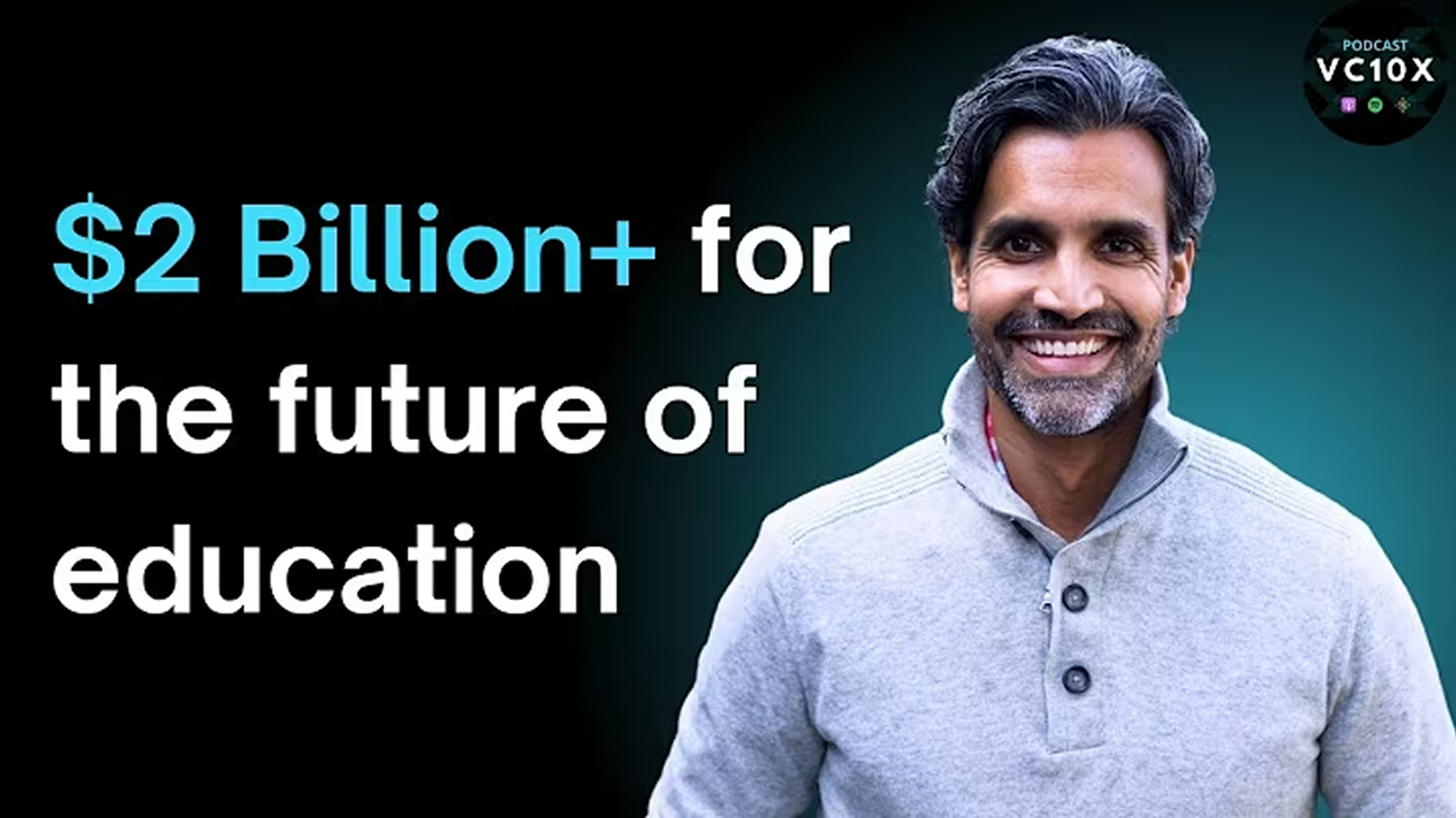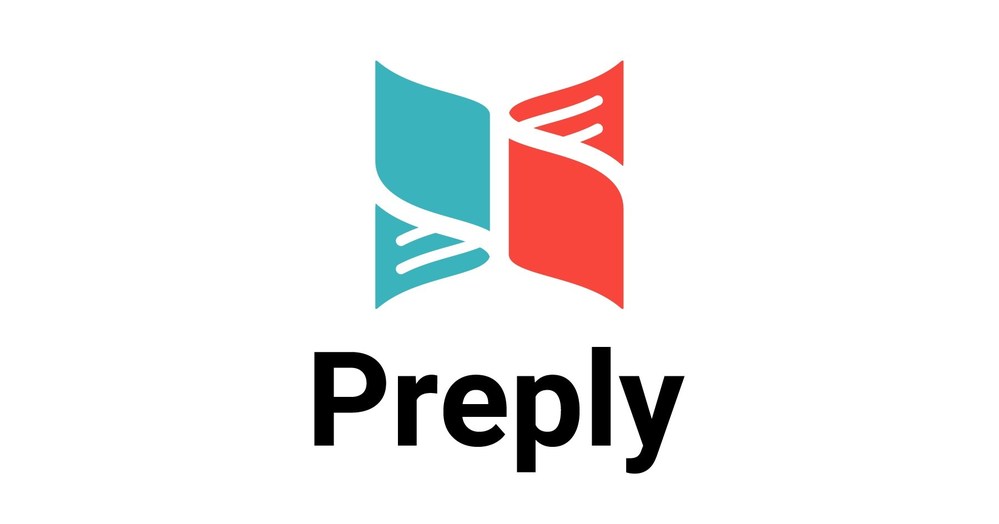Learning Tech Pioneer Degreed Gets New CEO, Now Valued At $1.4 Billion
Learning Tech Pioneer Degreed Gets New CEO, Now Valued At $1.4 Billion
Degreed, the pioneering learning tech company that leads the Learning Experience Platform market, just received $153 Million in additional funding and is now valued at $1.4 Billion. With a compound growth rate of over 70%, more than 350 customers, and 7 million users, this is a reasonable valuation and shows how big this market has become.
Let me give you some perspective. There are more than ten million employers around the world and virtually all of them need a corporate learning platform. The LMS market, which manages the administration and reporting of training, is over $4 Billion in size and the LXP space is even bigger. So Degreed has a long runway ahead.
I’ve spent months talking with Degreed customers (Ericsson, Citibank, Bank of America, Verizon, Schlumberger) and they are thrilled. Degreed’s product and services have provided tremendous value and the use of an LXP has opened up the door for employee learning, self-authoring, and knowledge sharing in a transformational way. And perhaps the biggest part of the story is how these companies let employees build their own learning paths, unleashing the ability for any expert to share their curated learning experience with others.
The market is very competitive, of course. Companies like EdCast, Learning Technologies Group, Oracle, Workday, SuccessFactors, and Microsoft Viva are all direct competitors. But Degreed is doing fine. The company has a head start in its user experience, skills engine, assessment options, and career mobility features. So Degreed’s juggernaut growth is likely to continue.
In another important announcement, Chris McCarthy, the CEO, is now stepping aside. A new CEO, Dan Levin (former COO of Box) is taking the reigns, marking a step toward a public offering. Given that Degreed is successful in large companies (the average client size has 20,000 employees), Dan can help the company scale and likely lead to an IPO. Chris has done an amazing job, taking this company from startup to market leader in only eight years.
Why are they raising all this money? It’s not just for organic growth. As I’ve discussed, the LXP market is “eating the learning industry” and the new learning tech stack starts with the LXP and then extends into learning management, virtual learning, career management, and the exploding new segment called talent marketplace. Once Dan gets his feet on the ground, I’d expect to see Degreed start to acquire other players.
As far as the valuation, it’s interesting to look at the numbers.
Docebo, which generated $63M last year and is growing at over 45%, is worth $1.5B. BetterUp, which has revenues over $80 Million, was recently valued at $1.7 Billion. Eightfold.ai, which is below $100M in revenue, is valued at over $1 Billion. PhenomPeople, which runs recruiting for some of the largest companies, is worth over $1 Billion. Lattice, which plays in a smaller space and has revenues around $50M, is also worth $1 Billion. Coursera, which generates $300M ($70M corporate), is worth $7 Billion.
Degreed, which could generate close to $100M in bookings this year, seems fairly valued.
A comment on valuations: right now HR Tech companies are trading at sky-high multiples. Why? The economy is on fire and HR Tech is a fast-growing, disruptive market. The way I see it, a Billion Dollars ain’t what it used to be.
Companies like Degreed, EdCast, Eightfold, BetterUp, and PhenomPeople, who play in the broadest part of the market (learning and recruiting are massive), are valued highly because of their opportunity. While most vendors love to brag about their valuations, remember these numbers don’t mean much until they go public. And yes, all investments from trading cards to bitcoin and NFTs are going a bit crazy.
As the labor market gets even tighter, this trend will continue. The shortage of talent is making it imperative to “build talent” not “buy talent.” This means learning vendors are in the hot seat.
Degreed, the pioneering learning tech company that leads the Learning Experience Platform market, just received $153 Million in additional funding and is now valued at $1.4 Billion. With a compound growth rate of over 70%, more than 350 customers, and 7 million users, this is a reasonable valuation and shows how big this market has become.
Let me give you some perspective. There are more than ten million employers around the world and virtually all of them need a corporate learning platform. The LMS market, which manages the administration and reporting of training, is over $4 Billion in size and the LXP space is even bigger. So Degreed has a long runway ahead.
I’ve spent months talking with Degreed customers (Ericsson, Citibank, Bank of America, Verizon, Schlumberger) and they are thrilled. Degreed’s product and services have provided tremendous value and the use of an LXP has opened up the door for employee learning, self-authoring, and knowledge sharing in a transformational way. And perhaps the biggest part of the story is how these companies let employees build their own learning paths, unleashing the ability for any expert to share their curated learning experience with others.
The market is very competitive, of course. Companies like EdCast, Learning Technologies Group, Oracle, Workday, SuccessFactors, and Microsoft Viva are all direct competitors. But Degreed is doing fine. The company has a head start in its user experience, skills engine, assessment options, and career mobility features. So Degreed’s juggernaut growth is likely to continue.
In another important announcement, Chris McCarthy, the CEO, is now stepping aside. A new CEO, Dan Levin (former COO of Box) is taking the reigns, marking a step toward a public offering. Given that Degreed is successful in large companies (the average client size has 20,000 employees), Dan can help the company scale and likely lead to an IPO. Chris has done an amazing job, taking this company from startup to market leader in only eight years.
Why are they raising all this money? It’s not just for organic growth. As I’ve discussed, the LXP market is “eating the learning industry” and the new learning tech stack starts with the LXP and then extends into learning management, virtual learning, career management, and the exploding new segment called talent marketplace. Once Dan gets his feet on the ground, I’d expect to see Degreed start to acquire other players.
As far as the valuation, it’s interesting to look at the numbers.
Docebo, which generated $63M last year and is growing at over 45%, is worth $1.5B. BetterUp, which has revenues over $80 Million, was recently valued at $1.7 Billion. Eightfold.ai, which is below $100M in revenue, is valued at over $1 Billion. PhenomPeople, which runs recruiting for some of the largest companies, is worth over $1 Billion. Lattice, which plays in a smaller space and has revenues around $50M, is also worth $1 Billion. Coursera, which generates $300M ($70M corporate), is worth $7 Billion.
Degreed, which could generate close to $100M in bookings this year, seems fairly valued.
A comment on valuations: right now HR Tech companies are trading at sky-high multiples. Why? The economy is on fire and HR Tech is a fast-growing, disruptive market. The way I see it, a Billion Dollars ain’t what it used to be.
Companies like Degreed, EdCast, Eightfold, BetterUp, and PhenomPeople, who play in the broadest part of the market (learning and recruiting are massive), are valued highly because of their opportunity. While most vendors love to brag about their valuations, remember these numbers don’t mean much until they go public. And yes, all investments from trading cards to bitcoin and NFTs are going a bit crazy.
As the labor market gets even tighter, this trend will continue. The shortage of talent is making it imperative to “build talent” not “buy talent.” This means learning vendors are in the hot seat.
Degreed, the pioneering learning tech company that leads the Learning Experience Platform market, just received $153 Million in additional funding and is now valued at $1.4 Billion. With a compound growth rate of over 70%, more than 350 customers, and 7 million users, this is a reasonable valuation and shows how big this market has become.
Let me give you some perspective. There are more than ten million employers around the world and virtually all of them need a corporate learning platform. The LMS market, which manages the administration and reporting of training, is over $4 Billion in size and the LXP space is even bigger. So Degreed has a long runway ahead.
I’ve spent months talking with Degreed customers (Ericsson, Citibank, Bank of America, Verizon, Schlumberger) and they are thrilled. Degreed’s product and services have provided tremendous value and the use of an LXP has opened up the door for employee learning, self-authoring, and knowledge sharing in a transformational way. And perhaps the biggest part of the story is how these companies let employees build their own learning paths, unleashing the ability for any expert to share their curated learning experience with others.
The market is very competitive, of course. Companies like EdCast, Learning Technologies Group, Oracle, Workday, SuccessFactors, and Microsoft Viva are all direct competitors. But Degreed is doing fine. The company has a head start in its user experience, skills engine, assessment options, and career mobility features. So Degreed’s juggernaut growth is likely to continue.
In another important announcement, Chris McCarthy, the CEO, is now stepping aside. A new CEO, Dan Levin (former COO of Box) is taking the reigns, marking a step toward a public offering. Given that Degreed is successful in large companies (the average client size has 20,000 employees), Dan can help the company scale and likely lead to an IPO. Chris has done an amazing job, taking this company from startup to market leader in only eight years.
Why are they raising all this money? It’s not just for organic growth. As I’ve discussed, the LXP market is “eating the learning industry” and the new learning tech stack starts with the LXP and then extends into learning management, virtual learning, career management, and the exploding new segment called talent marketplace. Once Dan gets his feet on the ground, I’d expect to see Degreed start to acquire other players.
As far as the valuation, it’s interesting to look at the numbers.
Docebo, which generated $63M last year and is growing at over 45%, is worth $1.5B. BetterUp, which has revenues over $80 Million, was recently valued at $1.7 Billion. Eightfold.ai, which is below $100M in revenue, is valued at over $1 Billion. PhenomPeople, which runs recruiting for some of the largest companies, is worth over $1 Billion. Lattice, which plays in a smaller space and has revenues around $50M, is also worth $1 Billion. Coursera, which generates $300M ($70M corporate), is worth $7 Billion.
Degreed, which could generate close to $100M in bookings this year, seems fairly valued.
A comment on valuations: right now HR Tech companies are trading at sky-high multiples. Why? The economy is on fire and HR Tech is a fast-growing, disruptive market. The way I see it, a Billion Dollars ain’t what it used to be.
Companies like Degreed, EdCast, Eightfold, BetterUp, and PhenomPeople, who play in the broadest part of the market (learning and recruiting are massive), are valued highly because of their opportunity. While most vendors love to brag about their valuations, remember these numbers don’t mean much until they go public. And yes, all investments from trading cards to bitcoin and NFTs are going a bit crazy.
As the labor market gets even tighter, this trend will continue. The shortage of talent is making it imperative to “build talent” not “buy talent.” This means learning vendors are in the hot seat.
Degreed, the pioneering learning tech company that leads the Learning Experience Platform market, just received $153 Million in additional funding and is now valued at $1.4 Billion. With a compound growth rate of over 70%, more than 350 customers, and 7 million users, this is a reasonable valuation and shows how big this market has become.
Let me give you some perspective. There are more than ten million employers around the world and virtually all of them need a corporate learning platform. The LMS market, which manages the administration and reporting of training, is over $4 Billion in size and the LXP space is even bigger. So Degreed has a long runway ahead.
I’ve spent months talking with Degreed customers (Ericsson, Citibank, Bank of America, Verizon, Schlumberger) and they are thrilled. Degreed’s product and services have provided tremendous value and the use of an LXP has opened up the door for employee learning, self-authoring, and knowledge sharing in a transformational way. And perhaps the biggest part of the story is how these companies let employees build their own learning paths, unleashing the ability for any expert to share their curated learning experience with others.
The market is very competitive, of course. Companies like EdCast, Learning Technologies Group, Oracle, Workday, SuccessFactors, and Microsoft Viva are all direct competitors. But Degreed is doing fine. The company has a head start in its user experience, skills engine, assessment options, and career mobility features. So Degreed’s juggernaut growth is likely to continue.
In another important announcement, Chris McCarthy, the CEO, is now stepping aside. A new CEO, Dan Levin (former COO of Box) is taking the reigns, marking a step toward a public offering. Given that Degreed is successful in large companies (the average client size has 20,000 employees), Dan can help the company scale and likely lead to an IPO. Chris has done an amazing job, taking this company from startup to market leader in only eight years.
Why are they raising all this money? It’s not just for organic growth. As I’ve discussed, the LXP market is “eating the learning industry” and the new learning tech stack starts with the LXP and then extends into learning management, virtual learning, career management, and the exploding new segment called talent marketplace. Once Dan gets his feet on the ground, I’d expect to see Degreed start to acquire other players.
As far as the valuation, it’s interesting to look at the numbers.
Docebo, which generated $63M last year and is growing at over 45%, is worth $1.5B. BetterUp, which has revenues over $80 Million, was recently valued at $1.7 Billion. Eightfold.ai, which is below $100M in revenue, is valued at over $1 Billion. PhenomPeople, which runs recruiting for some of the largest companies, is worth over $1 Billion. Lattice, which plays in a smaller space and has revenues around $50M, is also worth $1 Billion. Coursera, which generates $300M ($70M corporate), is worth $7 Billion.
Degreed, which could generate close to $100M in bookings this year, seems fairly valued.
A comment on valuations: right now HR Tech companies are trading at sky-high multiples. Why? The economy is on fire and HR Tech is a fast-growing, disruptive market. The way I see it, a Billion Dollars ain’t what it used to be.
Companies like Degreed, EdCast, Eightfold, BetterUp, and PhenomPeople, who play in the broadest part of the market (learning and recruiting are massive), are valued highly because of their opportunity. While most vendors love to brag about their valuations, remember these numbers don’t mean much until they go public. And yes, all investments from trading cards to bitcoin and NFTs are going a bit crazy.
As the labor market gets even tighter, this trend will continue. The shortage of talent is making it imperative to “build talent” not “buy talent.” This means learning vendors are in the hot seat.
Degreed, the pioneering learning tech company that leads the Learning Experience Platform market, just received $153 Million in additional funding and is now valued at $1.4 Billion. With a compound growth rate of over 70%, more than 350 customers, and 7 million users, this is a reasonable valuation and shows how big this market has become.
Let me give you some perspective. There are more than ten million employers around the world and virtually all of them need a corporate learning platform. The LMS market, which manages the administration and reporting of training, is over $4 Billion in size and the LXP space is even bigger. So Degreed has a long runway ahead.
I’ve spent months talking with Degreed customers (Ericsson, Citibank, Bank of America, Verizon, Schlumberger) and they are thrilled. Degreed’s product and services have provided tremendous value and the use of an LXP has opened up the door for employee learning, self-authoring, and knowledge sharing in a transformational way. And perhaps the biggest part of the story is how these companies let employees build their own learning paths, unleashing the ability for any expert to share their curated learning experience with others.
The market is very competitive, of course. Companies like EdCast, Learning Technologies Group, Oracle, Workday, SuccessFactors, and Microsoft Viva are all direct competitors. But Degreed is doing fine. The company has a head start in its user experience, skills engine, assessment options, and career mobility features. So Degreed’s juggernaut growth is likely to continue.
In another important announcement, Chris McCarthy, the CEO, is now stepping aside. A new CEO, Dan Levin (former COO of Box) is taking the reigns, marking a step toward a public offering. Given that Degreed is successful in large companies (the average client size has 20,000 employees), Dan can help the company scale and likely lead to an IPO. Chris has done an amazing job, taking this company from startup to market leader in only eight years.
Why are they raising all this money? It’s not just for organic growth. As I’ve discussed, the LXP market is “eating the learning industry” and the new learning tech stack starts with the LXP and then extends into learning management, virtual learning, career management, and the exploding new segment called talent marketplace. Once Dan gets his feet on the ground, I’d expect to see Degreed start to acquire other players.
As far as the valuation, it’s interesting to look at the numbers.
Docebo, which generated $63M last year and is growing at over 45%, is worth $1.5B. BetterUp, which has revenues over $80 Million, was recently valued at $1.7 Billion. Eightfold.ai, which is below $100M in revenue, is valued at over $1 Billion. PhenomPeople, which runs recruiting for some of the largest companies, is worth over $1 Billion. Lattice, which plays in a smaller space and has revenues around $50M, is also worth $1 Billion. Coursera, which generates $300M ($70M corporate), is worth $7 Billion.
Degreed, which could generate close to $100M in bookings this year, seems fairly valued.
A comment on valuations: right now HR Tech companies are trading at sky-high multiples. Why? The economy is on fire and HR Tech is a fast-growing, disruptive market. The way I see it, a Billion Dollars ain’t what it used to be.
Companies like Degreed, EdCast, Eightfold, BetterUp, and PhenomPeople, who play in the broadest part of the market (learning and recruiting are massive), are valued highly because of their opportunity. While most vendors love to brag about their valuations, remember these numbers don’t mean much until they go public. And yes, all investments from trading cards to bitcoin and NFTs are going a bit crazy.
As the labor market gets even tighter, this trend will continue. The shortage of talent is making it imperative to “build talent” not “buy talent.” This means learning vendors are in the hot seat.


.svg)








.jpg)




.png)





